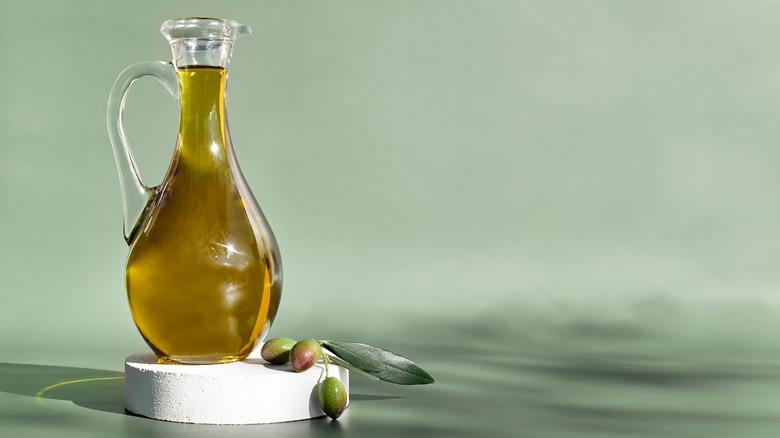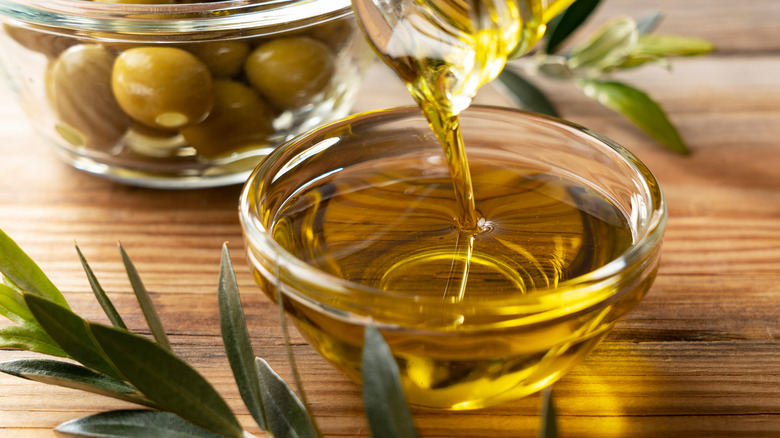Does Extra-Virgin Olive Oil Get Better With Age?
Among pantry staples, olive oil is non-negotiable. The fatty liquid operates as a cooking essential as much as it does a flavorful drizzle. Use it atop homemade pizzas, fry up eggs with it, or enjoy it alongside a loaf of fresh bread. With so many uses, olive oils can have a range of characteristics and specifications. You can choose from oils of varying degrees of lightness, refinery, and other attributes.
Similarly, different brands of olive oil, even those that produce the same iteration of oil, yield different flavors. While you may be tempted to go for the least expensive option, the pricier ones can be well worth the extra cost, especially if you're using the bottle beyond cooking. Shell out for a better brand when dinner includes a generous serving of burrata. A quality ingredient deserves a top-tier topping.
As such, you'll want to stock up on a few kinds of olive oil. The least refined of the bunch, extra-virgin olive oil packs significant flavor and is the unofficial king of olive oils. A large bottle of extra-virgin oil may therefore seem like a long-term investment capable of fulfilling any and all cooking needs; after all, olive oil retains a shelf life of roughly 18 to 24 months (per Healthline).
Yet just because olive oil can last for quite some time doesn't mean its flavors endure. Extra-virgin olive oil's significant shelf life doesn't actually reflect the longevity of its taste. For maximum flavors, you'll want to use that oil quicker than you think.
Consume extra-virgin olive oil at its freshest
While many foods and drinks improve with age — think blue cheese, fine wines, and similar gourmet delicacies — olive oil is all about freshness. Just-harvested olive oil is the ingredient at its best. The earlier you use your oil, the better its complexity will shine through. You may even be able to detect subtle flavors of bitterness and pungency (via Food & Wine).
The reason for this gradual loss of flavor is chemical. According to Old Town Oil, aging olive oils gradually break down. As an olive oil sits on a shelf, its acidity level rises, thereby weakening flavors. Old Town Oil recommends consuming extra-virgin olive oil within 18 to 24 months of harvest, not purchase. Typically, higher-quality olive oils last longer, so opt for a fresh bottle to circumvent a quick deterioration of quality.
No matter what you bring home, you'll want to use your olive oil as close to its date of harvest as possible. What better excuse to chop up some tomatoes and host a dinner party, Italian-style?

